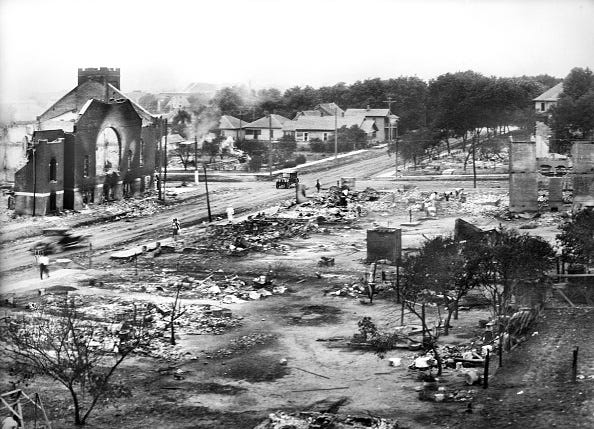1. Tyrants monopolize innocence for themselves and their supporters. But history challenges stories that equate power with virtue. So tyrants refer to history as "revisionist."
2. By "revisionism," tyrants mean what actually happened at critical moments in the past. In Russia, for example, the Soviet alliance with Hitler to invade Poland in 1939 is sensitive.
3. Tyrants today oppose history by enforcing an official myth in law. Memory laws were originally meant to protect facts about minorities. Increasingly, however, they flatter the emotions of majorities.
4. In the United States, the sensitive issue is race. Some American politicians call the history of African Americans "revisionism." They propose memory laws to protect people from feeling shame about shameful topics.
5. Memory laws are now an American reality. Idaho, Iowa, Oklahoma, Tennessee, and Texas have mandated guilt-free history in the classroom, using similar or identical phrasing. Similar measures are under discussion in another sixteen states. Florida requires teachers to say that racism is a personal prejudice unrelated to society or law.

6. Memory laws censor speech. State governments are telling teachers what they can say in the classroom. Because the laws protect emotions, teachers self-censor. Students can silence teachers by complaining that a topic makes them uncomfortable. Their parents can threaten to sue.
7. Memory laws undermine democracy. They divide citizens into those who accept the official version and those who contest it, those who can be allowed to participate in politics and those who cannot. This is evident in the United States, where memory laws will whitewash voter suppression.
8. Voter suppression is on the rise, and history helps us to see it for what it is. Fourteen states have passed voter suppression laws this year under the pretext of preventing "fraud." More than a century of American experience teaches that "fraud" is the cover story for laws meant to stop black people from voting.
9. Falsifying the past legitimates oppression in the present. Because the history of denying black people the vote is shameful, it is less likely to be taught where teachers are mandated to protect young people from feeling shame. Because the history of denying black people the vote involves law and society, it is less likely to be taught where teachers are mandated to tell students that racism is only personal prejudice.
10. Censoring the past to deny that racism is systemic makes it more so. When politicians’ false claims that voter suppression is a technical adjustment to prevent "fraud" are endorsed by the lawbooks and the schoolbooks, they continue into into the future. The circle closes.




The phrase “memory law” is new to me, and it was chilling to read it here. This is chilling-to grasp so deeply the implications of legislating what must be forgotten. I wonder if you would be willing to write a longer piece on this concept of memory laws. It’s crucial that we help people understand this.
good morning. the voter suppression laws are so bad - i don't think many really understand where those laws will take us. i never thought i would need to add things like voter laws, memory laws, etc. to my list of places to consider for retirement. i did not know how widespread this was.